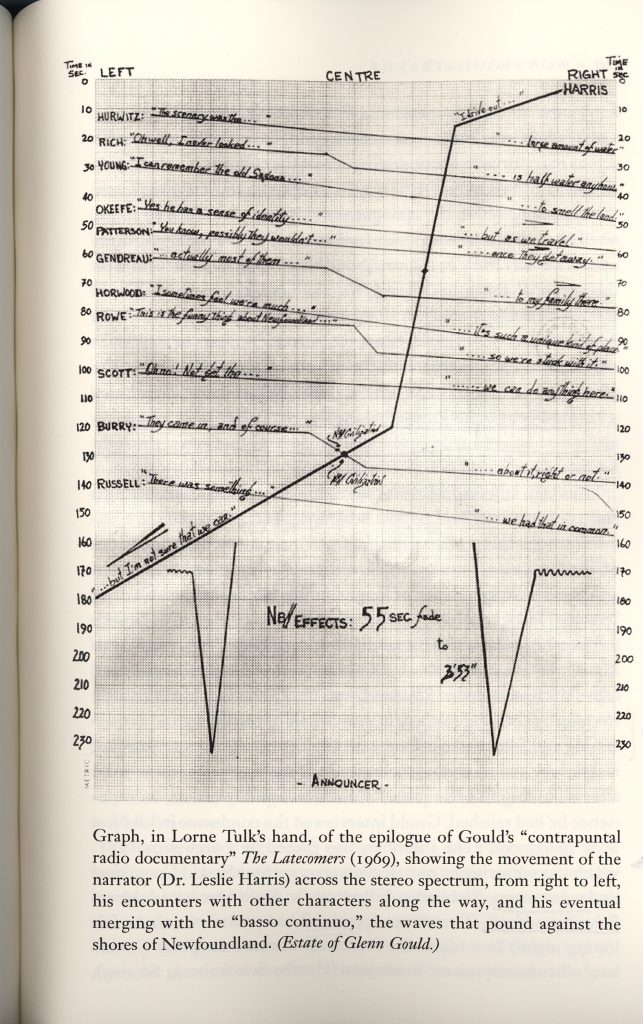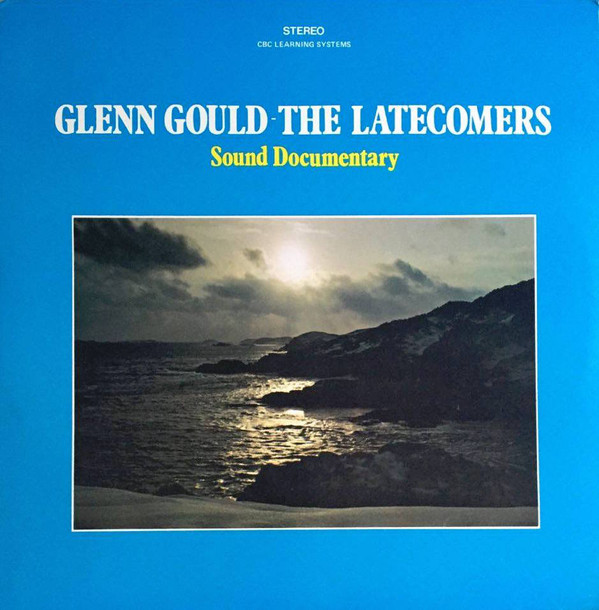Fifty years ago, on November 12, 1969, the Canadian Broadcasting Corporation aired The Latecomers, a sound documentary by Glenn Gould, the accomplished pianist who at that point in his career had stopped performing live in favor of studio recording. The latecomers in question are from Newfoundland, the last Canadian province, which joined the federation just twenty years earlier. It’s produced in a unique style, which Gould called “contrapuntal radio,” a reference to his favored musical approach where numerous independent melodies are played simultaneously. In this case, he interweaves the voices of thirteen Newfoundlanders into overlapping and layered stories about solitude, politics, hard work, and identity. Interspersed, and at times overpowering these stories, is the sound of the ocean beating against the rocky shoreline. The waves are an organic through-line, ushering voices in and out of this non-linear collage. In our current era of highly produced podcasts and audio stories, this experimental radio piece from five decades ago holds up extremely well.
The production techniques in The Latecomers build upon the approach Gould developed for The Idea of North, another sound documentary broadcast by the CBC two years earlier, in 1967. That piece included just five people, discussing their views on the Canadian North, and uses train sounds in a similar manner to the ocean waves in The Latecomers. These two works, along with a third called The Quiet in the Land about Mennonites in Manitoba (1977), became known as The Solitude Trilogy, and were subsequently published under that title.
“The mad rush of this life robbed us of the solitude, and really, the value of life comes from solitude.”
Newfoundlander in The Latecomers
Along with the textured overlapping of recordings, these audio documentaries make dramatic use of the stereo spectrum. I heard the The Latecomers for the first time on a road trip across Newfoundland and can highly recommend a car stereo as the ideal listening environment. The spatial separation of overlapping voices allows you to pick which one to concentrate on, since there’s no way to hear everything in one sitting. Listening like this reinforces that the goal is not solely information transfer; Gould is looking to create a rich sensory experience from these stories. As I drove through some the very places that people in the recording were talking about, I found myself building up an emotional impression of the province and its history. Every subsequent listen has felt additive to that understanding, not repetitive.
“It’s not that we particularly like our climate, which is lousy…You get really attached to a place like this, which is so different from other places…I’ll never be able to move away from Newfoundland.”
Newfoundlander in The Latecomers

“They won’t feel that cutting wood is degradation…this new generation will find pleasure in doing all the things that Newfoundlanders of my generation had to do to eke out an existence.”
Newfoundlander in The Latecomers
The Latecomers can be streamed via Spotify or YouTube. Glenn Gould’s Solitude Trilogy has three parts, and I’d recommend listening to them all, although there’s no particular reason to listen in chronological order.
